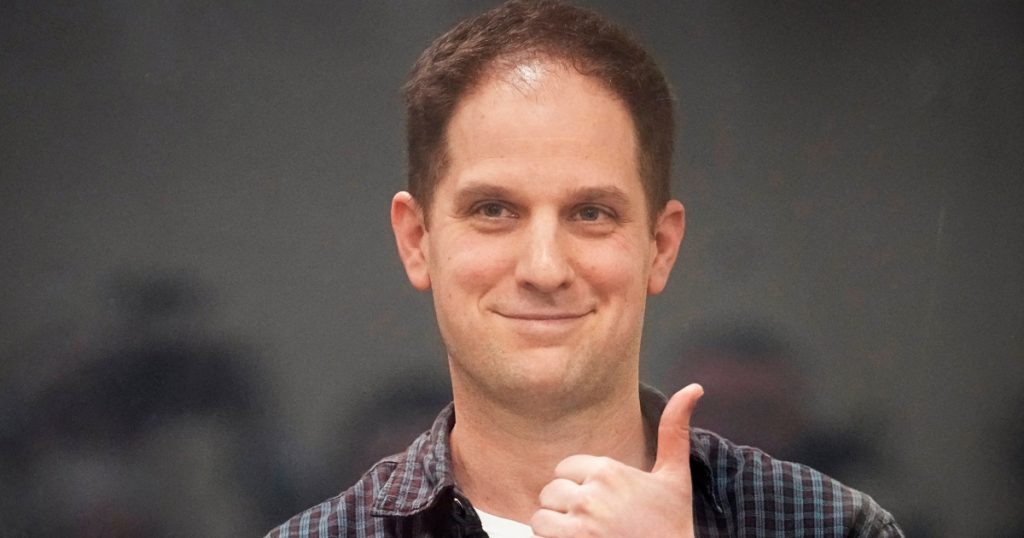The espionage trial of Wall Street Journal reporter Evan Gershkovich in Russia is set to begin on June 26 behind closed doors at the Sverdlovsky Regional Court in Yekaterinburg. Gershkovich, a U.S. citizen, has been in custody since his arrest in March 2023 and could face 20 years in prison if convicted. The accusations against him involve allegedly gathering secret information on a military equipment facility on behalf of the CIA. However, he, his employer, and the U.S. government have all denied these allegations, with Washington stating that he is wrongfully detained. The trial, which will be closed to the public, is a common practice in espionage cases in Russia.
Gershkovich’s case revolves around allegations of acting on U.S. orders to collect state secrets, specifically about Uralvagonzavod, a facility known for producing and repairing military equipment. The Federal Security Service in Russia made the accusations without providing any evidence to support their claims. U.S. State Department spokesman Matthew Miller has reiterated that Gershkovich is innocent and should be released immediately, emphasizing that journalism is not a crime. The U.S. government has been working to secure Gershkovich’s release, but the Russian Foreign Ministry has indicated that they would only consider a prisoner swap after a trial verdict.
The potential prisoner swap could involve Gershkovich and a Russian national imprisoned in Germany, likely Vadim Krasikov, who is serving a life sentence for a high-profile murder in Berlin. Russian President Vladimir Putin has suggested that a deal for Gershkovich’s release could be reached through reciprocal actions, and he has acknowledged that the U.S. is actively working towards securing the journalist’s freedom. Gershkovich’s situation has garnered significant attention, as he is the first U.S. journalist arrested on espionage charges in Russia since the Cold War, highlighting concerns about press freedom and the treatment of foreign reporters in the country.
The arrest of Gershkovich has sent shockwaves through the foreign journalist community in Russia, which has faced increasing challenges to freedom of speech and expression in recent years. Another U.S.-Russian reporter, Alsu Kurmasheva, is also currently detained on charges related to failing to register as a foreign agent while collecting information about the Russian military. Gershkovich, who is fluent in Russian and moved to the country in 2017, has received support from U.S. Ambassador Lynne Tracy, who has described the charges against him as fictional and part of a political agenda. The case of Gershkovich underscores the complexities and risks faced by journalists operating in environments with restrictive press freedoms.
As Gershkovich’s trial approaches, the international community, including the U.S. government, continues to advocate for his release and insistence on his innocence. The case has raised concerns about press freedom, censorship, and the treatment of foreign journalists in Russia, particularly in espionage-related cases. The outcome of Gershkovich’s trial could have significant implications for journalism and international relations, as both countries navigate diplomatic challenges related to the accusations against the Wall Street Journal reporter. The unprecedented nature of Gershkovich’s arrest and the espionage charges against him have drawn attention to the complexities of reporting in politically sensitive environments and the potential consequences for journalists working in such contexts.














